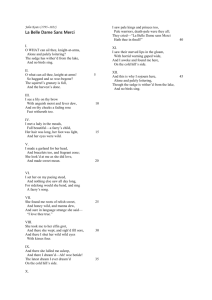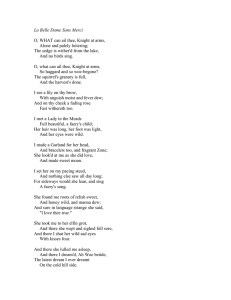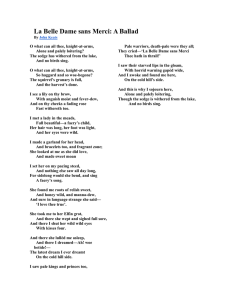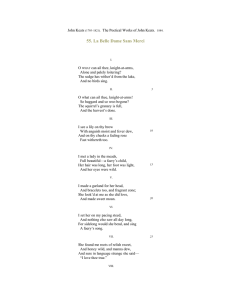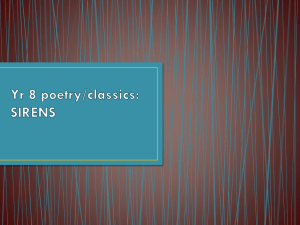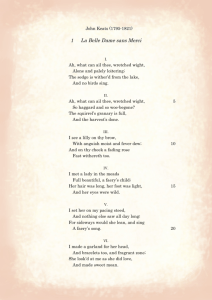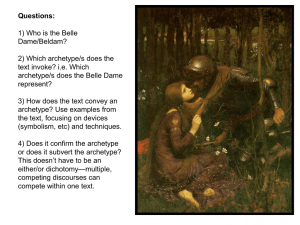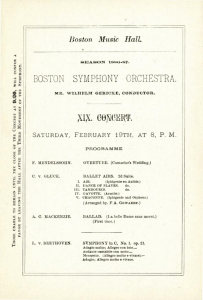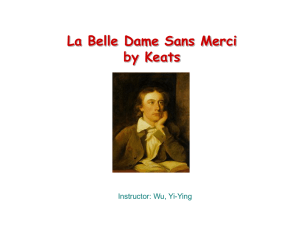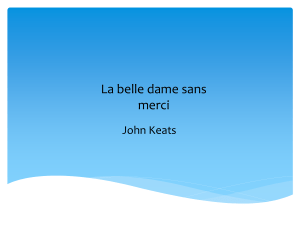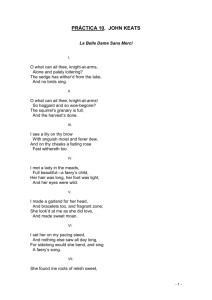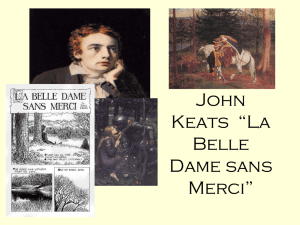La belle dame Sans merci
advertisement
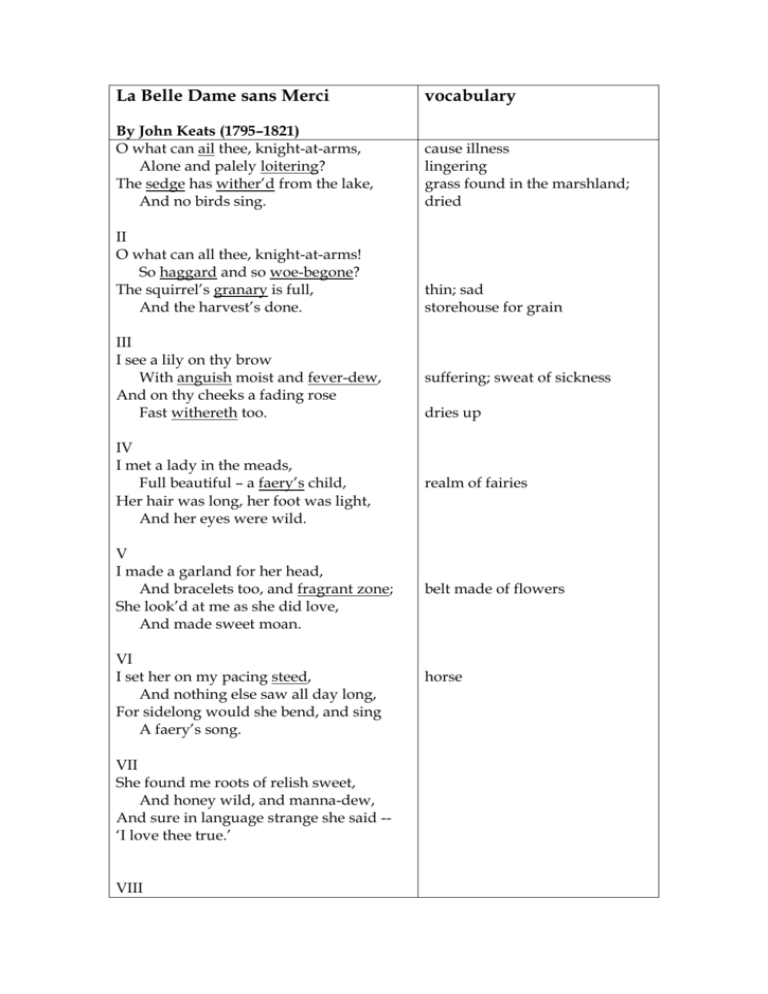
La Belle Dame sans Merci vocabulary By John Keats (1795–1821) O what can ail thee, knight-at-arms, Alone and palely loitering? The sedge has wither’d from the lake, And no birds sing. cause illness lingering grass found in the marshland; dried II O what can all thee, knight-at-arms! So haggard and so woe-begone? The squirrel’s granary is full, And the harvest’s done. thin; sad storehouse for grain III I see a lily on thy brow With anguish moist and fever-dew, And on thy cheeks a fading rose Fast withereth too. suffering; sweat of sickness IV I met a lady in the meads, Full beautiful – a faery’s child, Her hair was long, her foot was light, And her eyes were wild. realm of fairies V I made a garland for her head, And bracelets too, and fragrant zone; She look’d at me as she did love, And made sweet moan. belt made of flowers VI I set her on my pacing steed, And nothing else saw all day long, For sidelong would she bend, and sing A faery’s song. VII She found me roots of relish sweet, And honey wild, and manna-dew, And sure in language strange she said -‘I love thee true.’ VIII dries up horse She took me to her elfin grot, And there she wept, and sigh’d full sore, And there I shut her wild wild eyes With kisses four. 1X And there she lullèd me asleep, And there I dream’d Ah! woe betide! – The latest dream I ever dream’d On the cold hill side. grotto or cave bad things happen X I saw pale kings and princes too, Pale warriors, death-pale were they all; They cried – ‘La Belle Dame sans Merci Thee hath in thrall!’ enchanted or bewitched XI I saw their starved lips in the gloam, With horrid warning gapèd wide, And I awoke and found me here, On the cold hill’s side XII And this is why I sojourn here Alone and palely loitering, Though the sedge is wither’d from the lake, And no birds sing. 1819 gloom dwell; stay
